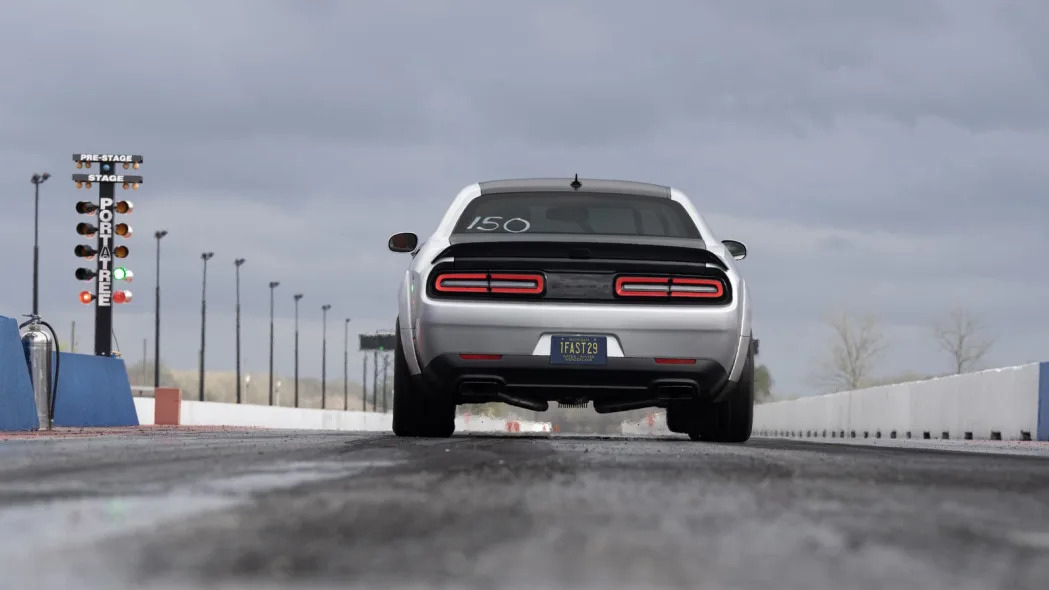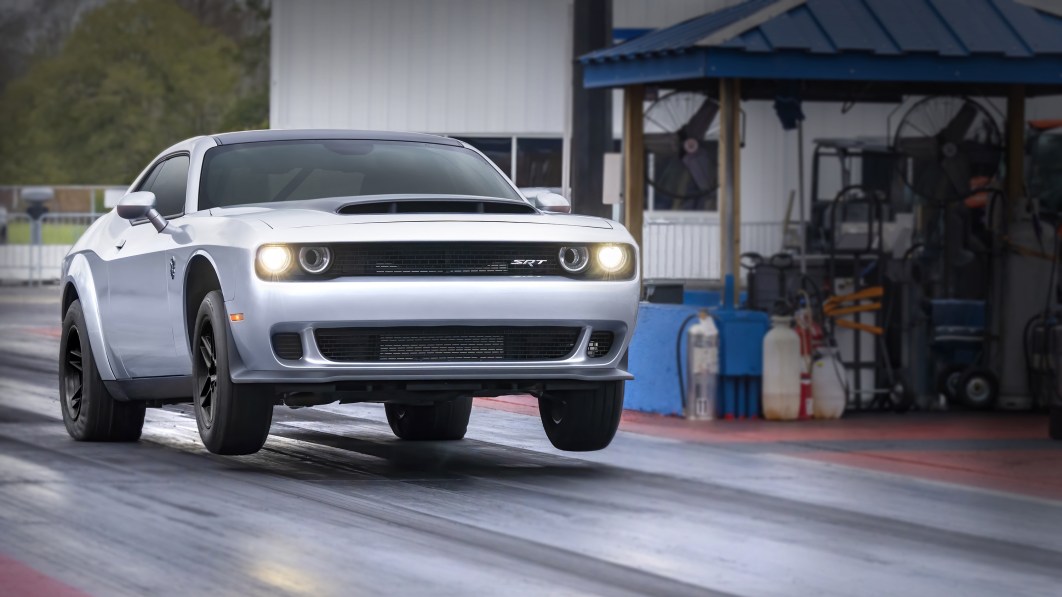Now we know that the new Dodge Charger won’t just be a coupe or a sedan, but in fact both. But that leaves us with another question: Where does that leave the Challenger? After all, the lineup since 2008 has had the Challenger as the two-door muscle car, and the Charger as the four-door. That was one of the questions asked of Dodge CEO Tim Kuniskis during a media briefing we attended, and he didn’t have much to say.
Basically, all he would confirm was that Dodge and Stellantis still have the rights to the Challenger name, and that for the time being, the nameplate won’t be in use. He wouldn’t confirm in any particular way whether it would return in the future.
We’re a little surprised that Kuniskis wouldn’t confirm anything about Challenger. It and the Charger together have thoroughly shaped the image of the Dodge brand as we know it, with the brand’s ultimate halo car post-Viper bearing the Challenger name: the Demon and Demon 170. And for the past three years, it’s sold between 44,000 and 55,000 units as the consistent third best-seller for the brand. It outsold the Camaro the past two years, too. It’s hard to imagine the Dodge lineup without the Challenger.

What presents a problem, though, is how it could fit in the lineup in the future. The Charger-Challenger dichotomy worked well, as it offered two distinct styles of a similar car: You had the more modern-styled sedan in the Charger, which also offered some extra practicality, and you had the more retro, purist Challenger that isn’t as practical. The Charger now has stronger retro cues, and it’s offered in two-door guise, leaving only a niche for a “modern” take on the platform. But that’s likely not enough to justify another vehicle of similar size and performance to the Charger.
Dodge could create something smaller, more lithe, more like a real sports car to call Challenger. And that would be a good contrast with how large Charger has become. But one of the things that’s helped both Charger and Challenger sell so well is the traditional muscle car look and feel. The Camaro has been much more of a sports car, and as we just covered, it has sold worse. Plus there are more sports car competitors to contend with. Then, a smaller car usually demands a smaller price, and it might not be as profitable to develop and sell. Another bonus to the old Challenger was that it was a cheap way to get another model and vibe from the same basic platform.
But maybe we’re selling the new STLA electric platforms a little short by assuming a smaller model could be less profitable. And perhaps there’s more of a demand for a sportier Dodge coupe. Only time will tell, and we hope we don’t have to wait too long for the answer.
Related video:







